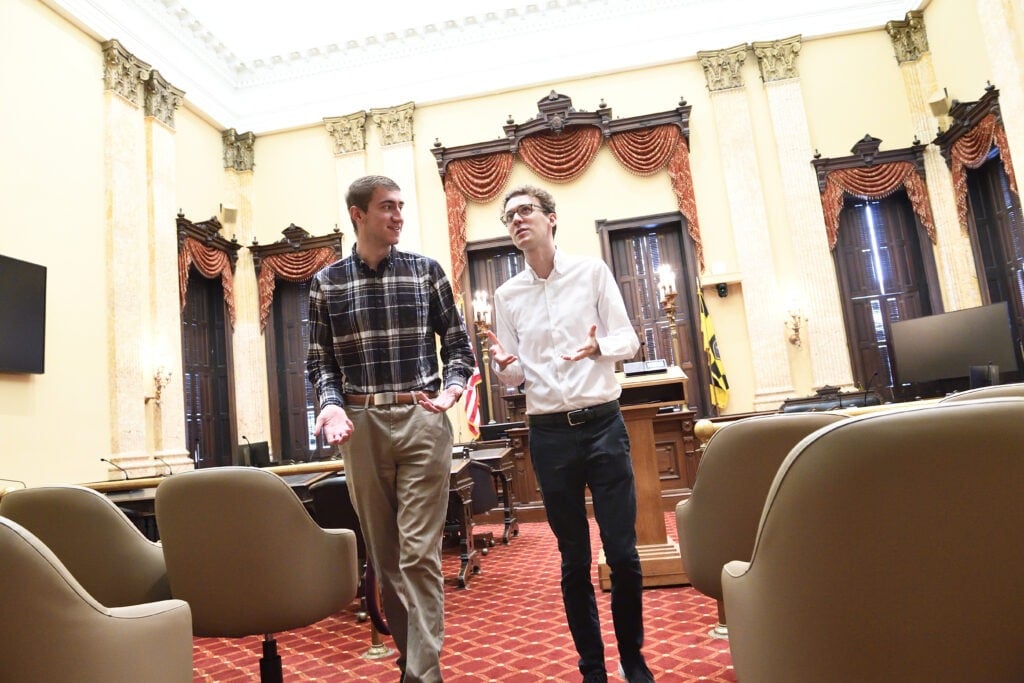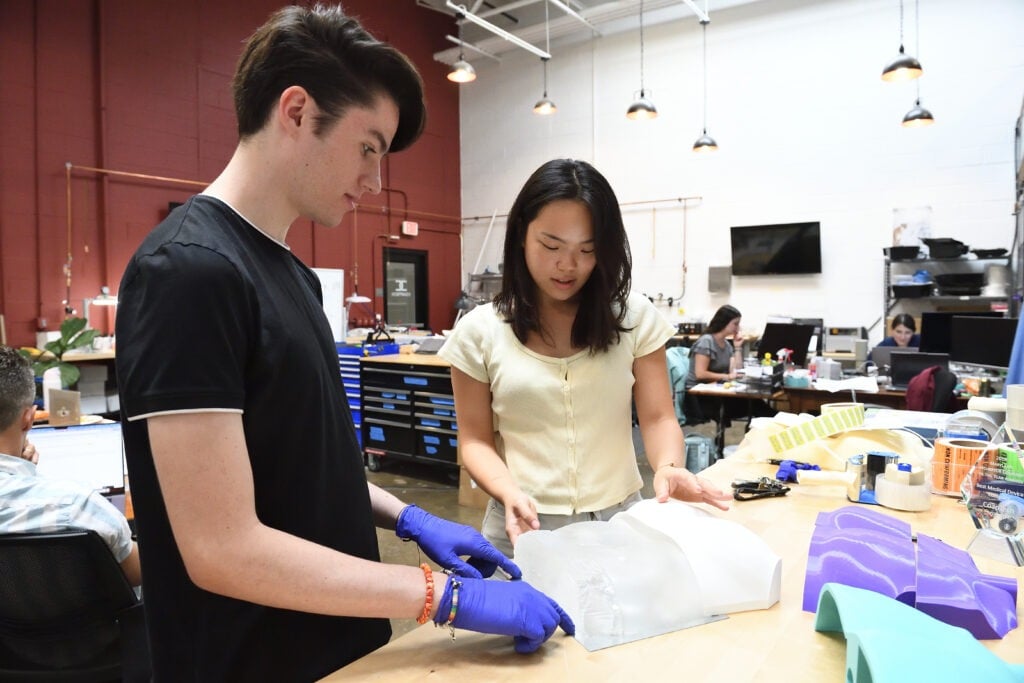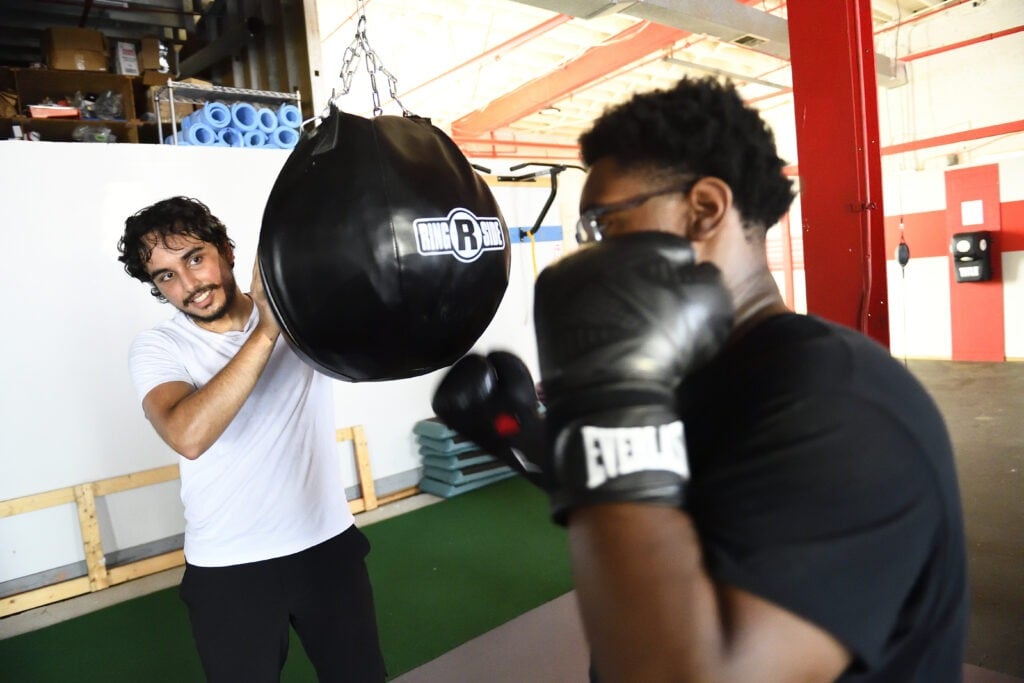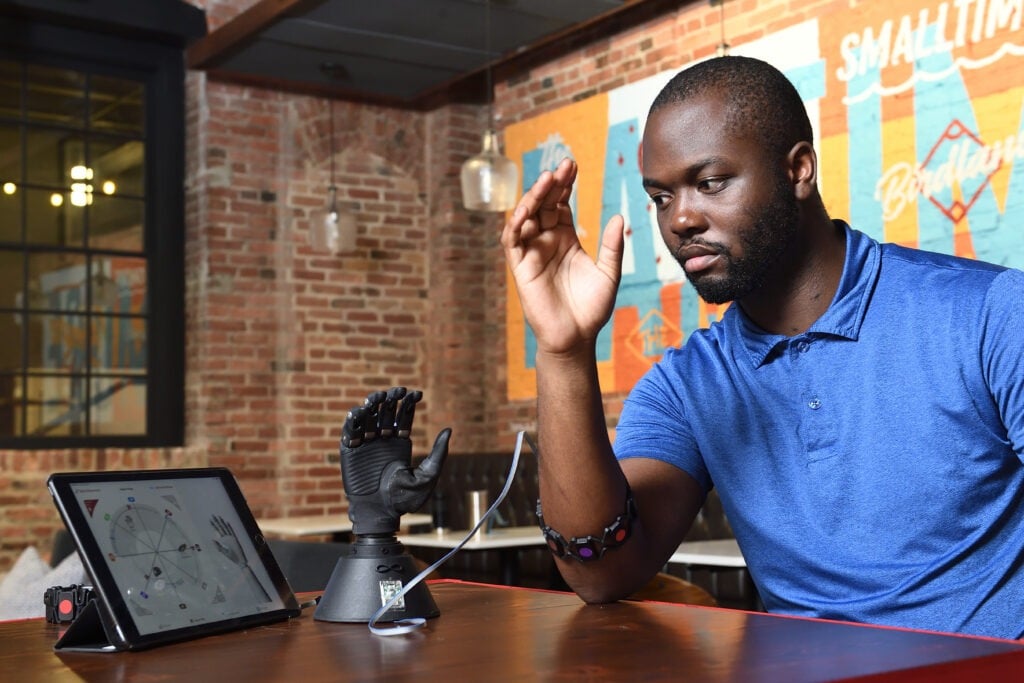This summer, biomedical engineering students ventured into the Baltimore community, working at internships that allowed them to apply their academic classroom knowledge while making meaningful contributions to local organizations ranging from a boxing club to a medical device company. These valuable experiences were made possible through two Johns Hopkins University internship programs.
The Community Impact Internships Program (CIIP) pairs JHU undergraduate students with nonprofit organizations and government agencies, and offers an intensive, cohort-based learning environment. These paid internships focus on community-identified projects in Baltimore.
The InBaltimore internship program is designed to increase Johns Hopkins undergraduate students’ involvement in Baltimore City and help strengthen the local community. This 10-week, subsidized internship program from the Life Design Lab places students in local businesses and community organizations.

Jackson Morris, Class of 2025
Major: Biomedical engineering, with a focus on genomics and systems biology; minor in applied math and statistics
CIIP Internship site: Office of Councilman Mark Conway, 4th District of Baltimore City’s representative to the Baltimore City Council; the 4th District of Baltimore City is to the northeast of the JHU Homewood campus and is primarily residential, containing several neighborhoods, most of Notre Dame of Maryland University’s campus, and an emerging commercial zone along the York Road corridor.
Role: Morris answers constituent calls and emails in order to resolve constituents’ issues by helping them navigate the services provided by city agencies. He also conducts research on city/state codes and services, and participates in meetings with constituents and other stakeholders alongside office staff.
“The councilman’s office has also been engaged in gathering information from medical, public health, and harm-reduction experts in Baltimore to better understand what steps can be taken to make progress on Baltimore’s opioid-driven overdose crisis,” said Jackson. “This project has capitalized on my biomedical engineering education in critical ways. Understanding how to parse through published research, interpret statistics, identify and contact meaningful stakeholders, and most critically, to ask questions when the information presented seems amiss, are all benefits of being a biomedical engineer. I am fascinated by the ways that academia and government can work together to realize translatory impacts — and this internship has helped me confirm the validity of that notion.”

Grace Noh, Class of 2026
Major: Biomedical engineering, with a focus on imaging and medical devices
InBaltimore Internship site: CoapTech, a medical device company that created the PUMA System, the first FDA-cleared, ultrasound-based solution for bedside feeding tube placement
Role: Noh is a product-engineering intern working on in-house production, paperwork for regulatory (FDA/ISO guidelines), and editing CAD drawings and sketches. She is working on the “PUMA NG project,” which involves research and development of a nasogastric feeding tube, and the “GI Joe Project,” which aims to reduce the overall cost and weight of a biorealistic training model. The model, which replicates a human torso and is fully made of ballistics gel, is roughly 12 lbs. Noh is working to reduce the weight to around 5 lbs to make the model easier to travel with.
“Through my internship experience, I have felt that I have a firmer understanding of what kind of environment I would like to work in,” said Noh. “I realized I love working in a fast-paced environment with a small, tight-knit group of engineers and clinicians. I believe that this experience is shaping my perspective on what I want for my future career.”

Ojas Chahal, Class of 2025
Major: Biomedical Engineering, with a focus on immunoengineering
CIIP Internship site: Corner Team is a boxing club that uses Olympic-style boxing to strengthen core competencies that support academic success, inspire healthy and active lifestyles, and build strong communities of engaged citizens. The organization is in the Midway/Coldstream neighborhood and offers a facility designed for mind, body, and community growth, with athletic amenities, a classroom for educational sessions, a computer lab for skills development, and a library.
Role: As a STEM and boxing coach in the Summer Champions Program, Chahal helps students learn STEM concepts through the lens of boxing and fitness. Using wearable devices that track parameters such as punch speed and power during training sessions, Chahal helps students gather data to learn about their physical activity. The final project of the summer is preparing for Community Day, an annual outdoor event in a newly created community garden where the neighbors surrounding Corner Team engage in fitness activities developed by the youth with guidance from Chahal and the other coaches.
“I think this experience is one of the most meaningful I’ve had in my time at Hopkins, because it’s helped me feel more connected to the greater Baltimore community,” said Chahal. I’ve been able to interact with local youth, artists, teachers, coaches, and community leaders, in a way that has uniquely allowed me to contribute knowledge and skills from my STEM background, while also learning many new skills. These skills range from practical skills like boxing, to soft skills like navigating conversations with individuals who have very different backgrounds and lived experiences compared to me. Although I did not originally envision that I would work in a boxing gym this summer, the experience has been incredibly rewarding.”
Marvin Larweh, Class of 2025
Major: Biomedical engineering, with a focus on biomedical data science
InBaltimore Internship site: Infinite Biomedical Technologies (IBT) is a medical device company that focuses on making technology for upper-limb amputees. This company was founded in 1997 out of the lab of Nitish Thakor, professor of biomedical engineering at JHU. Their products include form-fitting batteries, electrodes, and advanced control systems to drive myoelectric upper limb prostheses for those with limb loss.
Role: Larweh is designing research test protocols and setups to compare prosthetic control strategies using hardware circuitry and Python software. He uses the data collected from experiments to generate relevant statistical analysis and metrics that give insight as to how each control strategy compares with the others and informs the project’s next steps.
“This experience has allowed me to apply a lot of what I learned through Design Team in a practical sense. I got a lot of experience with designing test protocols, which has been quite helpful when doing so for IBT,” said Larweh “My Design Team project was heavily focused on electronics, which helps with the hardware setups I do for testing. I’ve even found myself pulling up some old Arduino codes I helped work on to inform the new ones I designed for IBT. The internship has challenged me to be more independent in my work while also collaborating with others. I’m especially grateful knowing that the work I’m doing contributes to bettering people’s lives, starting right here in Baltimore.”

